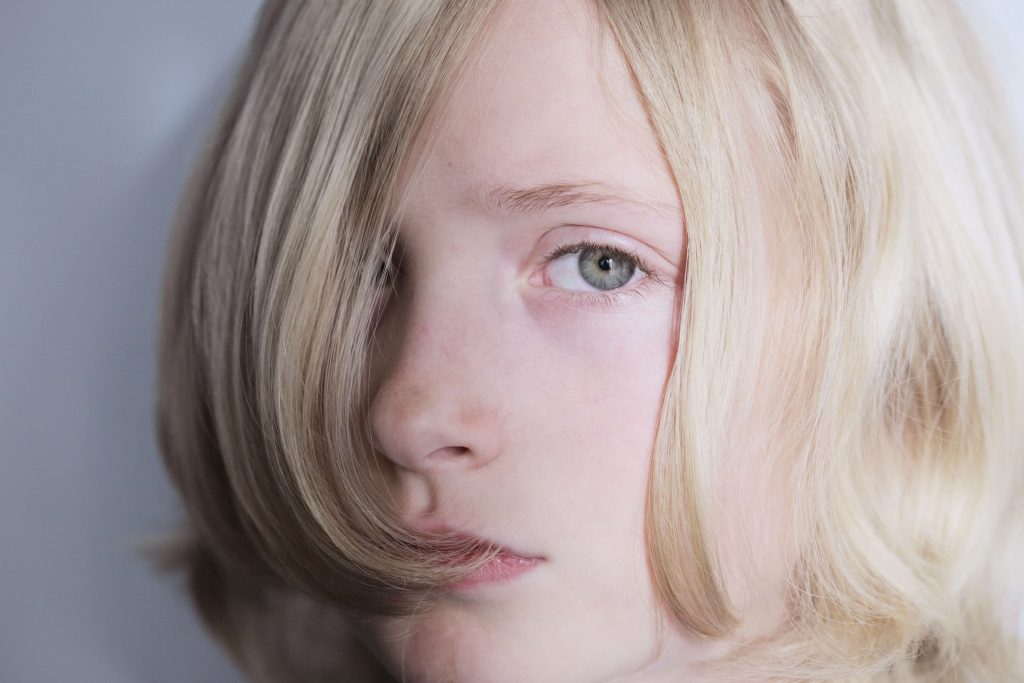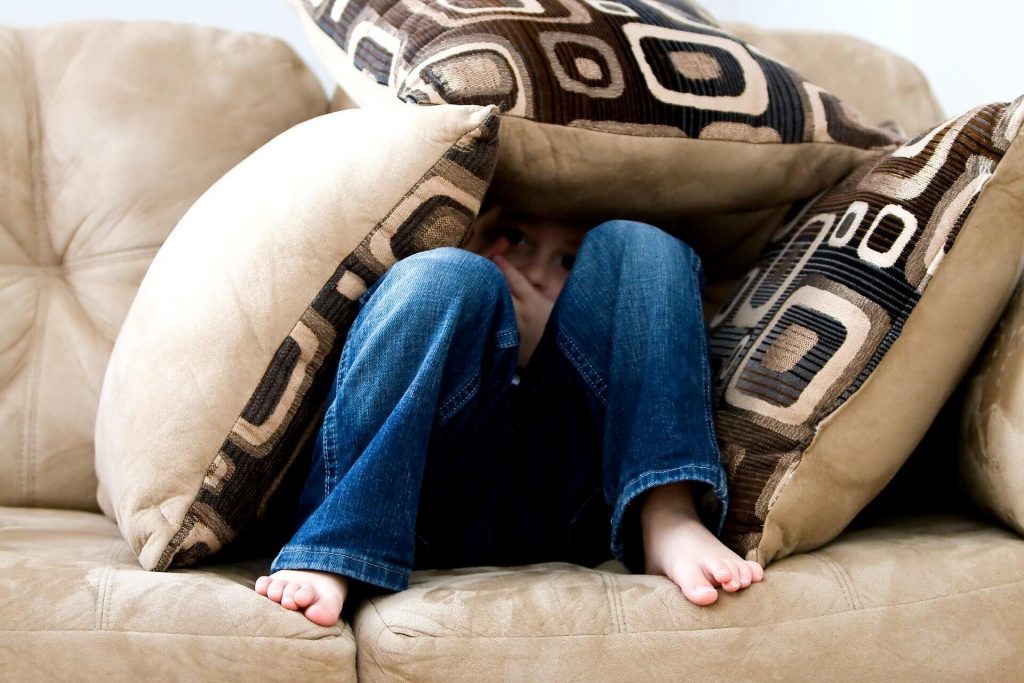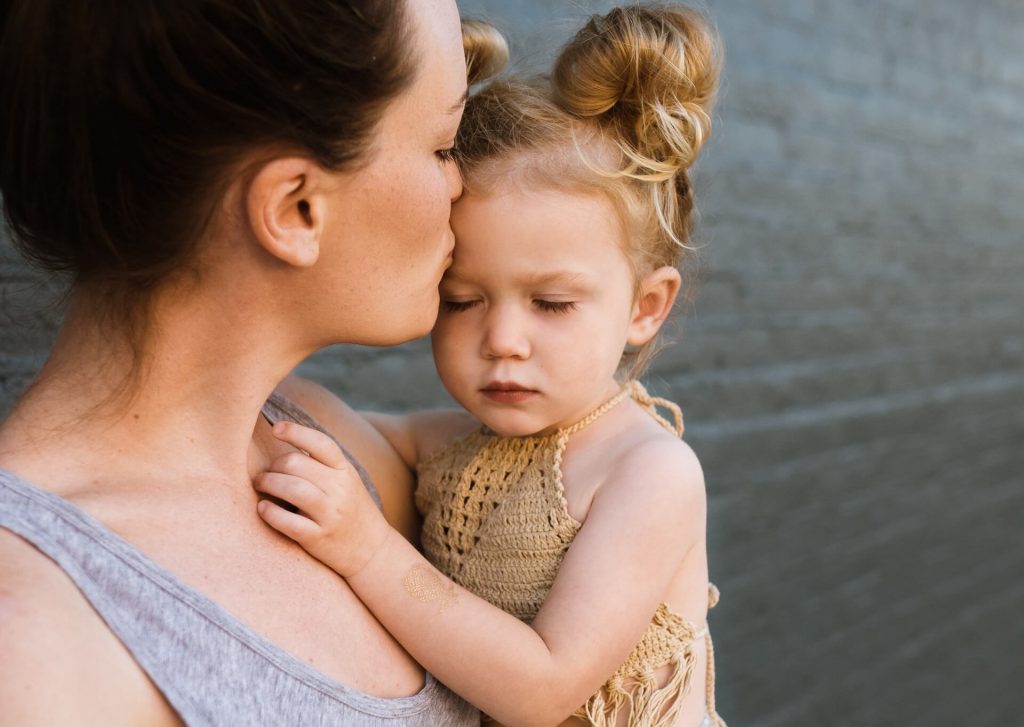Why Kids Lie and What Parents Can Do to Stop It

While bringing up their child, parents pay special attention to the development of positive moral qualities. Honesty is one of them.
Usually, the child’s lie comes out unexpectedly and leaves many mothers and fathers bewildered. We will tell you in this article how to understand why your child lies and how to deal with the child’s lies.
Contents:
- Types and aims of a child’s lie
- How to understand that the child is deceiving parents – signs
- Why is the child lying
- Sources of lies
- How to wean a child from lying – the advice of a psychologist
Types and aims of a child’s lie

Prostock-studio/Shutterstock.com
Child’s lies have many reasons. Most often, it is a type of lies that is described by a goal, which the child has:
- A tendency to fantasize and «play with a lie»
The school reading list has a beautiful work by Nikolai Nosov – a novel «Dreamers». It is a story about two funny and kind kids with a very rich imagination. Their fantasies take them to the ocean to the sharks, then, to Africa to the crocodiles, and even to the moon. We can hear similar stories from our children as well.
It is worth mentioning that these stories can’t be considered lies as they are. It is more about the rich imagination of a child and his or her artistic abilities.
- Fear-related lies
It is a widespread type of lies in children. This type of reality distortion is often used by children to avoid punishment (usually, from parents).
- Deliberate lies
Using a well thought through lies, children often have a specific goal. The most common option is the pursuit of any material goods (money, toys, sweets, etc.)
How to understand that the child is deceiving parents – signs

Prostock-studio/Shutterstock.com
Most widespread signs that can be used to know that the child is hiding something, or is openly lying, are:
- deviate from a companion;
- «hugging» himself;
- abruptly leaning the head backward, or tilting it down, to the side;
- hiding sight, not looking into the eyes;
- coughing and swallowing during the conversation;
- twirling something in his or her hands (a pencil, a rubber, etc.);
- often touches the nose, wiping the forehead, eyes, chip or is tinkering the earlobe;
- covers up mouth
- scratching the neck or «sorting out» the collar;
- hiding behind objects (table, a fluffy toy, etc.);
- choosing a static pose (without moving);
- pauses before telling lies;
- talking through details, wishing to hide the lie.
Why is the child lying

Prostock-studio/Shutterstock.com
Main reasons
Psychologists define several leading causes for the child’s lies:
- Fear of punishment
When the child understands that he will be punished for a mistake, he finds a way of getting out of this situation – to tell lies and, this way, to avoid punishment.
- To become better in other people’s eyes
Often children use lies to raise their status, assert themselves. They tell their peers about the fictional income of their parents, imaginary vacations, etc.
- Lies as a way to set personal boundaries
Often children use lies when upholding and protecting their personal boundaries when they understand that parents want or push their control too much on them.
- Mistrust to adults, family problems
If the child lies a lot, it often indicated that there are problems within the family. In these cases, lies are supported by stealing and vandalism, which children use to «shout for help».
- Lies as a type of protest
You can see a child using lies often when he or she is trying to «challenge» the adult’s authority.
Age-related particular qualities

Prostock-studio/Shutterstock.com
2-4 years old
At this age, the child is discovering the surrounding world. At this stage, the child dreams a lot; he uses fantasies to colorize reality. All fantasies at this age are safe. Don’t stand on the way of a little dreamer; help him instead. Offer a kid to draw or make out of clay an «imaginary hero».
4-5 years old
At this age, the child is not able yet to separate the reality from lies. If you lie to him, he believes it. A parent that is not telling the truth forms a similar behavioural model in his child. A child starts to use lies, even though there is no need for it. Most often, this happens if the child is afraid to cause mum’s disapproval. At this age, kid treats disapproval as an absence of love. It is easier for a kid to lie than to hear that he or she is not loved and that he or she is bad.
7-8 years

Prostock-studio/Shutterstock.com
The most important and breaking moment. The child starts going to school: from the side of parents – less control and more freedom. When communicating with peers, the schooler wants to be better, braver and stronger. Showing off works best in these situations and the child starts to actively use it. Despite this, if the child starts to receive bad marks, he or she is trying to hide it by not telling about it. The kid is just quiet about them.
Don’t miss the moment. Talk to the child and explain that your love is not connected to marks in the school diary and that he or she is not worse than other kids in class.
9-10 years
To take the most meaningful place amongst peers, the child starts to actively lie. He or she understands well the difference between the truth and lies, but this doesn’t stop kid: unreal stories about travels, prestigious job of parents, cool gadgets, etc. – this is just a small part of all possible fables that a child can think of at this age.
11-12 years
At this age, the child’s lies are closely related to the critical trust level within the family, as well as can be due to a strict upbringing.
At this age, the child knows the exact edge between the truth and lies. He or she will be lying consciously, having a specific aim in mind. There can be many reasons: lack of attention, self-affirmation, fear of humiliation, protection of personal boundaries and many more.
Sources of lies

Prostock-studio/Shutterstock.com
Absence of attention
If a child is telling everyone how great his or her life is, how friendly and happy his or her family is, and how much he or she is loved by parents – this is a reason to think about your relationships. Maybe, the child lacks attention, and he or she is telling about what he or she would love to have in reality.
Excessive criticism
If parents criticize their child too much, they cause a decrease in the self-esteem of a child, induce the development of various complexes. A child becomes unsure and not happy of himself. In this case, children use lies to change the situation and to become worth respect.
Excessive strictness

Prostock-studio/Shutterstock.com
In cases when parents bring up their child strictly and punish him or her for any mistake, there is no need to be surprised that the child is using lies as a way to protect himself, and tries to avoid the punishment this way.
Limiting emotions
It is often difficult for an adult to control emotions, and what can we say about a child?! If parents begin to impede the release of the child’s negative emotions and will let him or her understand that they only want to see a kid «happy and well-behaved», then, the child will close in himself. The kid will start lying about thoughts, feelings, and wishes, trying to please parents.
«A game on feelings»
If parents intentionally show how upset they are with a child’s bad grades, bad behaviour, etc, then, in this way they will provoke the child to hide the truth, be quiet, lie, not to upset parents.
How to wean a child from lying – the advice of a psychologist
First of all, parents should remember that for a child, lies is a possibility to release the inner conflict, as well as to gain a lifebuoy in a hopeless situation.
For parents, children’s’ lies are often a «shout for help», an SOS signal, a reason to pay more attention to a happy and successive, from the outside, child.
What should be done by the parents of children, whose lies have become an integral part of their lives?
What can parents do and how can they react

Prostock-studio/Shutterstock.com
Every situation of the appearance of lies in the life of a child is unique, but, of course, there are common steps on the way to solving the situation.
- Clarify the reason for child’s lies
Parent, who has caught their child lying, trying to solve the situation, often starts with reproaches and punishment, which only worsen the conflict. The correct and resultative approach to exit this situation is to establish an understanding and trusting relationship with a child.
- Analyse own behaviour
It is very important to analyse our own behaviour, to pay attention to changes that occurred in the relationship with the child and to answer the question, «What has changed in my behaviour and in our relationship?»

Prostock-studio/Shutterstock.com
Despite this:
- Try to get away from punishments. Fear is the main trigger of a child’s lies. When the child is scared, he or she tries to find a way of avoiding punishment and sees an alternative in lying.
- Do not put your unrealized plans into your child and do not wait for his or her successes in everything. This becomes a heavyweight, which many children do not cope with.
- Do not give empty promises to your child. Children are like sponges; they suck up all of the parents’ forms of behaviour. If you allow yourself not to keep promises, as well as open lies, then, do not expect that a child will not be copying you.
- «Listen» to the lies
It is worth paying attention to what the lies are related to. Maybe, the child is telling you about his or her wishes through lies, or, in reverse, is explaining what bothers him/her.
Practical recommendation for dealing with child’s lie

Prostock-studio/Shutterstock.com
- Do not worsen the situation at home. Do not make a tragedy out of the lie.
- Talk «one on one» with your child. This will decrease the psychological discomfort.
- Show the child that to liquidate the consequences of his or her actions is better than to lie. «Broke a mug? Tell us about it, and we will pick up the remaining together».
- Refuse the power-related methods of problem-solving. It is only making it worse.
- Let the child be himself and to openly express emotions, thoughts, wishes. This will give a child an exact understanding that he or she is loved by you, no matter the situation.
- Talk with the child «equally». Let him understand that he or she is accepted the way he or she is, even with a different opinion.
- Let the child have a choice. Respect his/her feelings and decisions.
- Apologize if you are not right, including the child.
- Become an example of an honest person for your child.
- Use modern technologies.
Modern technical devices are a great help for the parents in solving many problems, including those related to child lies. If you suspect that your child is not fully honest with you and is not communicating with you, use the application «Findmykids».
Using a GPS-tracker and a function of listening to the surroundings, you can know exactly where your child is and what he or she is doing. Moreover, if the kid has any problems, then, he or she can always send an SOS signal to you.

Prostock-studio/Shutterstock.com
From everything said above, we can conclude that children’s’ lies are a direct indication of a crisis in parent-child relationships. And to overcome this crisis, there is a need to do a big job for parents. Try to understand what your child wants to say with his lies; what needs is he or she trying to fulfill?
Put in efforts and create an atmosphere of acceptance, calmness, and harmony in your family. Then, children will not have to look for salvation from troubles and loneliness in lies.

Prostock-studio/Shutterstock.com
Проверьте электронный ящик




















